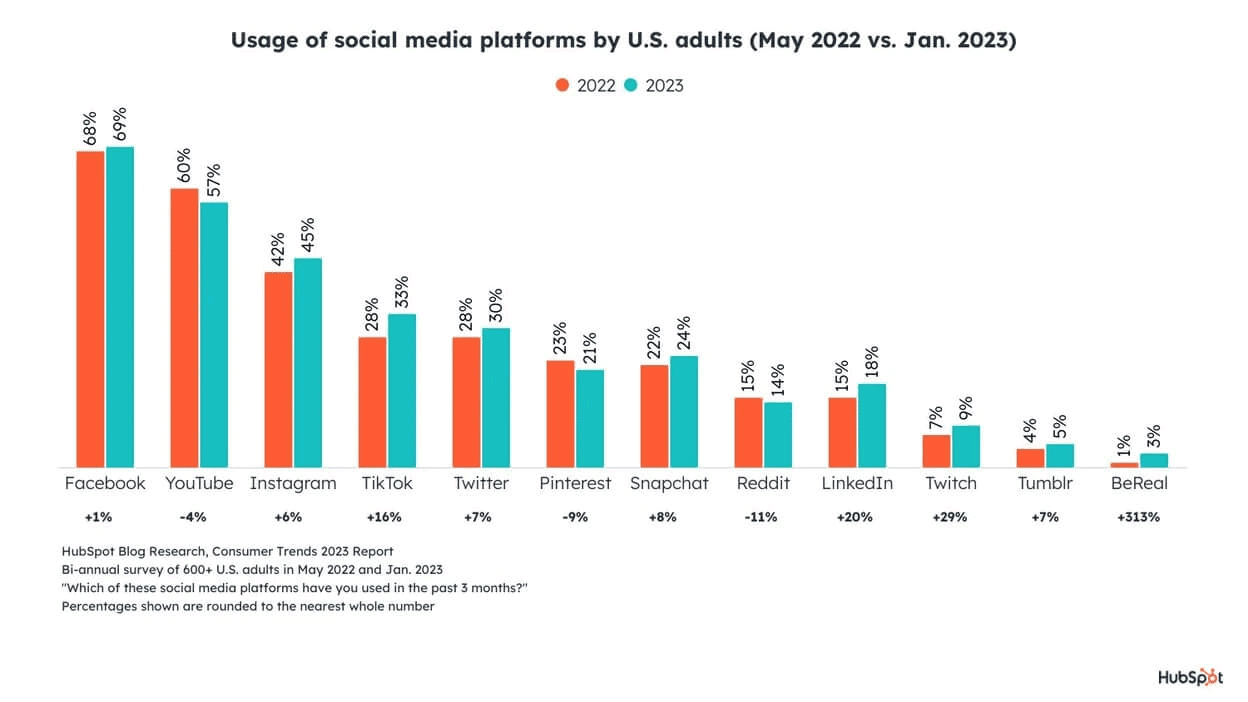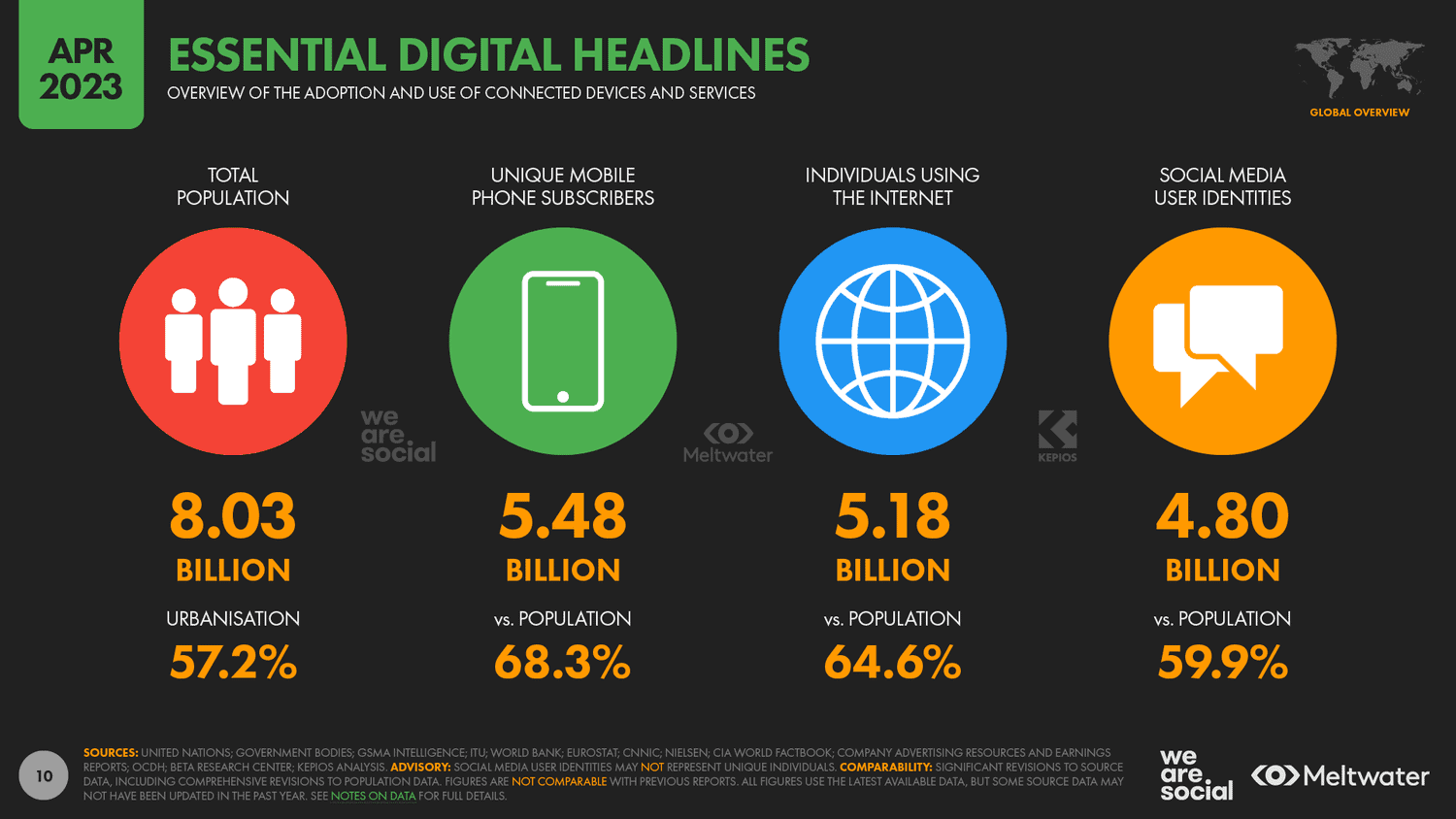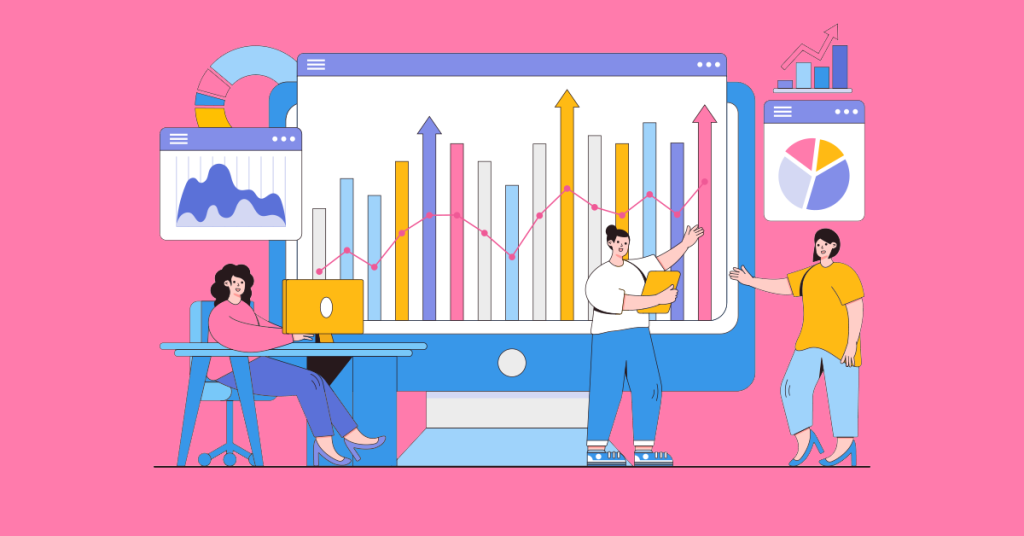Today’s brands know the value of the internet as a marketing channel. And, when it comes to online conversations, the importance of social media is clear.
But using your target audience’s online activity to its full potential requires keeping a close eye on their behavior and engagement. What exactly are your customers saying? How are they reacting to your posts and those of your competitors? What positive or negative conversations are happening?
Your customers’ social media activity is a mine of valuable insights, revealing what your customers want, think, and feel and what motivates them.
Social media intelligence can help you gather and analyze this information, allowing you to design marketing strategies, create products, and shape your business in line with consumer demands.
A social media intelligence-driven approach means your business is customer-centered, and your actions are guided by data gathered in real-time.
Leveraging social media to understand your customers is the essence of social media intelligence. It can give your business an edge and help it grow in step with your customers.
So, let’s look at what social media intelligence is and how it can help your business.

Free-to-use image sourced from Pixabay
What is social media intelligence?
The average time spent on social media daily is two hours and 24 minutes. That’s almost two and a half hours each day during which you have the opportunity to engage with, influence, and persuade your customers and potential customers.
Knowing how exactly to capitalize on this chunk of your consumers’ time, and how to tell if your posts and engagement have been successful, is where social media intelligence comes in.
Social media intelligence can gather and analyze social activity and feedback insights into your business. For example, you might learn about online gripes regarding your customer service, which could lead you to consider how to improve contact center performance.
Social media intelligence isn’t just useful for monitoring these conversations—it can also analyze patterns and trends to help your business plan and react in terms of its activities and future pathways.
Typically, social media intelligence involves tracking conversations on X (formerly Twitter), Instagram, Facebook, and other platforms. These insights can then be used to steer the course of your marketing strategies and evaluate the success of current campaigns based on factors such as engagement and ROI.
There are many trends in social media marketing that your business would be wise to pay attention to—for example, the rise of influencer marketing and user-generated content.
But social media intelligence is more than just a fad; it’s a game changer when it comes to your business getting the most from its online activities.

Free-to-use image sourced from Unsplash
Social media intelligence: Four essential steps
There are four important steps involved in gathering and utilizing social media intelligence. Before we look at them, however, it’s worth pointing out that to successfully gather information of any kind, it’s first necessary to establish what you want to know or hope to discover.
Prepare first
So, before you embark on step one of collecting and implementing these analytics, it’s a good idea to consider this—otherwise, the wealth of information you gather may overwhelm and dilute your focus. We all know the dangers of going down a wormhole when delving into online information, so setting parameters is key.
Establishing what you need to know and how you might use this information is essential for making the most of your social media intelligence and other analytics.
1. Monitor
Having decided what you need to know, it’s time to monitor any social media sites where your consumer base is likely to be actively engaging. Track their conversations and reactions, and search for the topics you’re most interested in.
For example, what does your target audience think about the future use of AI? Can this help you answer some of the questions you have about using artificial intelligence to help your business run more intuitively and efficiently?
There are dozens of tools to help you find and track conversations on particular topics. These enable you to search for key phrases and hashtags, such as “AI call center software”, as well as mentions of your brand, but we’ll look into these later.
2. Collect data
The next step involves collecting and collating information from conversations you’ve observed. You may be gathering data on several different topics, so thinking about how you’re going to organize and categorize this is vital.
You might, for example, be interested in certain trends, the demographics of your target audience, or reactions to your products and services. Or perhaps you’re trying to decide on the best mobile e-commerce software for your business.
In this scenario, collecting customer conversations on shopping online via their mobiles, both concerning common frustrations and perceived convenience, is vital. You don’t want to lump all online shopping experiences together if you’re specifically looking at mobile e-commerce.
3. Analyze data
Once collected and logged, the next step is to analyze the information you’ve gathered. This can be a manual or automated process, and there are many tools to facilitate and speed up analysis (which we’ll cover later).
But principally, this is the point where you can draw conclusions about the information you’ve mined. Through analysis, information thus transforms into useful and usable insights.
So, what do you have? Have you been surprised by the power of influencer marketing on Instagram, for example? Will this lead you to invest more of your marketing efforts in finding and collaborating with suitable influencers?
Perhaps you’ve noticed that certain products are attracting favorable comments from a particular gender, age group, or geographical location. Is this what you expected? Is this where your marketing strategies have been targeted? If not, it might be time to change tactics, to re-focus, or extend the reach of your campaigns.
You might also have noticed from looking at customer comments on a competitor’s account that there’s a gap in the market for a particular product or service. Is this something you currently offer but need to shout about more? These are the kinds of insights that analyzing data can provide.

Image sourced from blog.hubspot.com
4. Take action
The last step, and the ultimate purpose for all the work that has gone before, is to take action. Armed with social media intelligence, you can decide which products to promote, which to develop, what your customers would like improved in terms of your service, and what you’re doing well at and need to continue with.
You might discover that your website needs work or your landing pages need optimizing. Do your customers want a different delivery service or better options for shopping via mobile?
The decision about what to do with the insights you’ve gained will be a business one, determined by cost and budget, staffing, and your vision for the future. But having hard data about what your target customers think, feel, and say can underpin much better decision-making.
What are the benefits of social media intelligence?
The benefits of social media intelligence are clear: with a majority of the world’s population using these channels, knowing how your target audience is engaging online is vital.
Luckily, social media intelligence is an opportunity to gain information that, before online platforms such as Instagram and Facebook, would have been laborious and difficult to obtain.

Image sourced from datareportal.com
To break it down, its many benefits include:
Improved insights and customer engagement
Social media intelligence delivers insights that can steer better business strategies and decision-making. What’s unique about the opinions you gather from it is that they’re likely to be unguarded and honest. The source material, after all, is freely given comments made by people in their leisure time.
These insights can help you understand true customer preferences and underlying trends, which is invaluable in serving both your customers and business better.
By tracking social media conversations relevant to your brand and products, you can target your content, seed keywords, and tag topics to drive engagement. Having understood your audience, you can better cater to them, helping you build loyalty and a following.
In addition, utilizing a virtual data room can enhance the security of sensitive data related to your social media intelligence efforts, ensuring that your customer insights are protected and confidential.
This enhanced understanding of your audience’s preferences and behaviors through social media intelligence contributes to improved insights and customer engagement, ultimately helping you build loyalty and a following.
Additionally, social media intelligence can complement your email marketing strategy, allowing you to tailor your email campaigns based on the insights gathered from social media interactions.

Free-to-use image sourced from Unsplash
Better crisis management
It’s just as important to track negative conversations as it is positive comments. Social media intelligence can help you respond to customer criticism and keep your brand reputation intact.
Negative commentary can escalate quickly on social platforms. It’s easy to see a chain of complaints snowball, and ignoring these conversations is not a good look for a business.
Using social media intelligence can help you keep tabs on negative online posts and comments. This enables you to respond quickly, solve problems, and repair relationships. In this way, social media intelligence can be a useful crisis management tool.
It can also be a way to reach your audience when potential threats to their security emerge. You can use social media intelligence to search for risks to consumers and alert followers to criminal activity, such as scam likely phone numbers or fake emails. This will portray you as a helpful and caring brand.
A competitive advantage
The data social media intelligence supplies can give your business a definite competitive advantage too. Spotting opportunities and market trends, fending off negative narratives, and developing winning marketing strategies are just a few of the ways it can give your business an edge.
Social media intelligence can also help you outperform your competitors. It’s as vital to monitor your rivals’ social media engagement as it is your own. By doing so, you can identify where competitors have gone in a direction you should mirror and where their offering is lacking, showing your business a potential opportunity.
This ability to spot opportunities and threats is a huge advantage of social media monitoring and gives you an important competitive advantage.
Helps you evaluate your marketing
Perhaps one of the most crucial benefits of social media intelligence is in evaluating the success of your advertising and marketing campaigns.
Social media intelligence can reveal how many times your brand name or logo is shared or mentioned on social media platforms with the help of image recognition software. If you factor in when campaigns are launched, sponsorships paid for, or influencers brought on board, you can see how successful these tactics have been.
This is important for budgeting for and planning future campaigns. It could be that a certain influencer hasn’t had the effect you hoped for or that a particular sponsorship has turned out to be a sound investment. These insights are invaluable in evaluating your marketing efforts.
Additionally, social media intelligence tools can help you gather and analyze data from social media efficiently and thoroughly, ensuring you make data-driven decisions. Whether you’re looking to enhance your customer service, refine your product offerings, or even explore new opportunities like a delivery service business plan, social media intelligence can provide the insights you need to make informed decisions.

Free-to-use image sourced from Unsplash
Social media intelligence tools
Utilizing social media analytics tools can help you get the most from your social media intelligence. Fortunately, there are a variety of free digital tools and apps available, as well as more advanced options that will charge a fee to use them.
These tools enable you to gather and analyze data from social media efficiently and thoroughly and can help you derive the greatest benefit from your efforts.
Of course, it’s important to find the right fit for your business and working methods when choosing a tool. So, look for options that include features like live updates, sentiment analysis, visual aids to ‘see’ insights and trends, and content performance overviews. A unified platform that manages and presents these insights in a user-friendly way is ideal.
Some social media platforms provide integrated tools to help you gather this intelligence. Although these are usually more limited in the data they can collect than specialized options (which can analyze insights from several platforms at once), they’re still useful for businesses wanting to leverage the power of social media intelligence—especially those that have limited funds to do so.
Final Thoughts on Social Media Intelligence
Social media intelligence is a vital tool for businesses and brands that want to track changes and trends in audience behavior and preferences and manage their online brand image and reputation effectively.
Essentially, this intelligence is a versatile tool that can tap into the voices, hearts, and minds of consumers. Businesses can use it to give customers more of what they want, outmaneuver their competitors, fight negative commentary, and, above all, grow a successful and responsive business.


